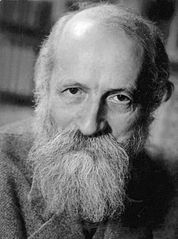
Discover the Other was born out of a process of reflection on the post 9/11 world when the words of Martin Luther King seem particularly prophetic:
“We must learn to live together as brothers or perish together as fools.”
Can we learn how to make diversity work? Or do we destroy ourselves in the attempt to force others to become like us.
Most of us have experienced the challenge of difference in one way or another. For example, I am fortunate to be married to someone who is, in almost every respect, opposite to me. This goes beyond just gender differences (though they are real enough) and we have the tests to prove it. We’ve done various psychological profiles – Myers Briggs, DISC, Enneagram etc, and each time we seem to come out on different sides of the spectrum.
Being so different is both a blessing and a curse. At our best we are a great team, each bringing insights and abilities that the other lacks. At our worst we have a vast potential for misunderstanding, miscommunication and the ability to say or do the things most likely to wound each other.
In 1923 the Jewish philosopher Martin Buber published his masterpiece Ich und Du (I and Thou) in Germany. In it, Buber invites us to discover the “other”:
- to move beyond treating people as objects to be manipulated;
- to move beyond projecting our own hopes and fears onto others,
- and instead to relate to and respect the “otherness” of others.

Alas, this does not come naturally. How much blood has been spilt in attempts to convert others to “our” way of thinking? How often do we judge the people we work with, considering them “unreasonable” because they don’t see and do things “my way”? How often we treat each other as things – as means to an end?
Some of those who suffered the most from our failure to accept the “other” have been the Jews. Buber himself was forced to leave Germany in 1938 and spent the rest of his life in Palestine and Israel. He walked the talk – both in terms of the Jewish–Arab relationship and later pioneering academic links between Israel and Germany. He died in 1965.
His legacy lives on in a new generation of Jewish thinkers, such as Jonathan Sacks, Chief Rabbi of the United Hebrew Congregations of the Commonwealth, whose book “The Dignity of Difference” was published in 2002, and in the many Christian writers and thinkers who Buber influenced.
Today these ideas are more relevant than ever. In Australia, 24% of the population were born outside the country. The International Office of Migration predicts that wordwide migration will double over the next three decades. While Australia generally does well in terms of multiculturalism, there are many places where it could do better. Meanwhile, in Europe there is a growing sentiment that multiculturalism has failed.
Part of the problem lies with the European idea of tolerance. This grew out of the wars of religion in Europe when, over centuries men, women and children were slaughtered because they had different religious beliefs. Out of this came the idea that matters of belief were a private affair and that no-one had the right to impose their beliefs on anyone else. In the late 20th Century this was extended beyond religion to the area of moral values. The idea arose that so long as a person wasn’t breaking the law, their values were a private matter and not open for discussion.
Inevitably this gave rise to a clash of values in countries like the Netherlands, which traditionally valued women’s rights, sexual freedom and freedom of expression – values which were not shared by some of the immigrant population.
Engaging with difference is a great opportunity to grow. It is a chance to step into a bigger world, to learn new perspectives and play to the diverse strengths of a team. But this engagement cannot happen in a values-free environment. There has to be room to challenge each other on the values we hold dear – whether it is women’s rights, family obligations, bribery or anything else.
That is why the process of “discovering the other” places equal importance on listening to others, but also on the search together for “what is right” – finding a path that sits comfortably with our values. This is only possible because there are some core values which are universal human values. We all value truth over lies, we all have a notion of fairness and reciprocity. We all long to be treated with respect and to make a contribution. When these shared values inform our discussions it is possible to be flexible on other matters.
Every human endeavour benefits from the combined efforts of many different types of people. Sometimes this is invisible. Sometimes, as in diverse workplace, it is more obvious. As we learn how to make diversity work, we also build a better world.
